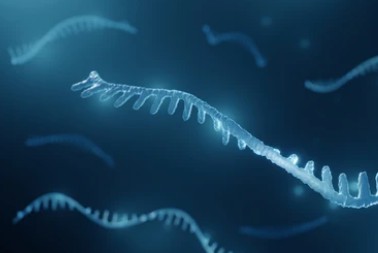-
- Development of Small Molecule Drug for Stroke
- Targeted Stroke Drug Development
- Stroke Drug Development Targeting Noncoding RNAs
- Stroke Drug Development Targeting PSD-95
- Stroke Drug Development Targeting Tau
- Stroke Drug Development Targeting Heat Shock Protein 70
- Stroke Drug Development Targeting Notch
- Stroke Drug Development Targeting Guanosine
- Stroke Drug Development Targeting Nogo-A
- Stroke Drug Development Targeting Nrf2
- Stroke Drug Development Targeting DAPK1
- Stroke Drug Development Targeting AMPK
- Stroke Drug Development Targeting Caveolin-1
Stroke Drug Development Targeting Cell Death- Stroke Drug Development Targeting Ferroptosis
- Stroke Drug Development Targeting Pyroptosis
- Stroke Drug Development Targeting Necroptosis
Stroke Drug Development Targeting Different Cell TypesStroke Drug Development Targeting Other Components- Stroke Drug Development Targeting Mitochondria
- Stroke Drug Development Targeting Autophagy
- Stroke Drug Development Targeting Epigenetic Mechanisms
- Stroke Drug Development Targeting Blood Brain Barrier
- Stroke Drug Development Targeting Excitotoxicity
- Stroke Drug Development Targeting NMDAR
- Stroke Drug Development Targeting The GluN2B Subunit of NMDAR
- Stroke Drug Development Targeting Glutamate
Development of Exosome-Based Stroke Diagnostic Technology
Exosomes are attracting more and more attention due to their mechanism of action, low toxicity, and ability to cross the blood-brain barrier. Exosomes play an important role in the pathology of stroke, such as regulating the activity of nerve cells, relieving neuroinflammation, and restoring neurological function. Further studies have shown that exosomes play an equally important role in the diagnosis of stroke. Therefore, Ace Neuroscience offers a range of services to understand the potential activity of exosomes in stroke diagnosis, develop exosome-based stroke diagnostic techniques, and accelerate the prediction of stroke outcome and prognosis in order to attack stroke more quickly.

Extraction & Analysis of Exosomes
Due to the wide source of exosomes, they can be extracted from almost all body fluids, including blood, cerebrospinal fluid, urine, and saliva. Therefore, there are various methods for exosome extraction. Therefore, Ace Neuroscience offers different methods for exosome extraction. Our scientists develop the right exosome extraction protocol for you based on your sample and experimental requirements.
Exosomes are rich in functional contents such as proteins, nucleic acids, lipids, and other metabolites. Therefore, the analysis of exosomes is essential to clarify their specific functions. Ace Neuroscience offers a comprehensive range of analytical services for exosomes.
- We observe the size and morphology of exosomes by transmission electron microscopy while analyzing the specific sites of exosome expression of specific targets in combination with immunolabeling.
- For protein analysis, we analyze the protein content, type, and expression of each protein by different methods, from superficial to deep.
- For nucleic acid analysis, we study the expression of target nucleic acids by PCR and also analyze the levels of different genes in exosomes and the expression of non-coding RNAs associated with exosomes by means of sequencing or gene chips.
Development of Exosome-Based Stroke Diagnostic Technology
Exosomes carry large amounts of nucleic acids, proteins, lipids, metabolites, and antibodies from host cells that are indicative of the pathophysiological conditions of the host and are therefore essential for the development of clinical diagnostic techniques. It has been found that exosomes extracted from blood or cerebrospinal fluid can be used for the diagnosis of central nervous system diseases. Clinical studies have shown that exosomes from stroke patients have higher m iRNA-223 expression than healthy subjects, and stroke patients with poorer outcomes tend to have higher levels of exosomal miRNA-223 expression. Also, miRNA-21-5p expression in exosomes appeared significantly different in different stages of stroke, including acute stroke, subacute stroke, and recovery stroke. Based on related studies, Ace Neuroscience has established a complete method for developing exosome-based stroke diagnostic techniques.
- Methods for isolating exosomes from blood and cerebrospinal fluid.
- Stroke-specific markers such as non-coding RNAs and cytokines are identified by protein microarray and gene microarray techniques to distinguish other diseases with similar symptoms, such as migraine, and seizures.
- Screening potential biomarkers for different stages of stroke by protein microarray and gene microarray technologies.
- To develop stroke specific diagnostic methods by combining different biomarkers.
If you would like to learn more about our services, please feel free to contact us.
Reference- Lee, E. C., et al., Utility of exosomes in ischemic and hemorrhagic stroke diagnosis and treatment. Int J Mol Sci, 2022. 23(15).
All of our services are intended for preclinical research use only and cannot be used to diagnose, treat or manage patients.Ace NeuroscienceWe are committed to accelerating progress in stroke research and drug development.
Connect with usCopyright © Ace Neuroscience. All rights reserved.0Inquiry Basket